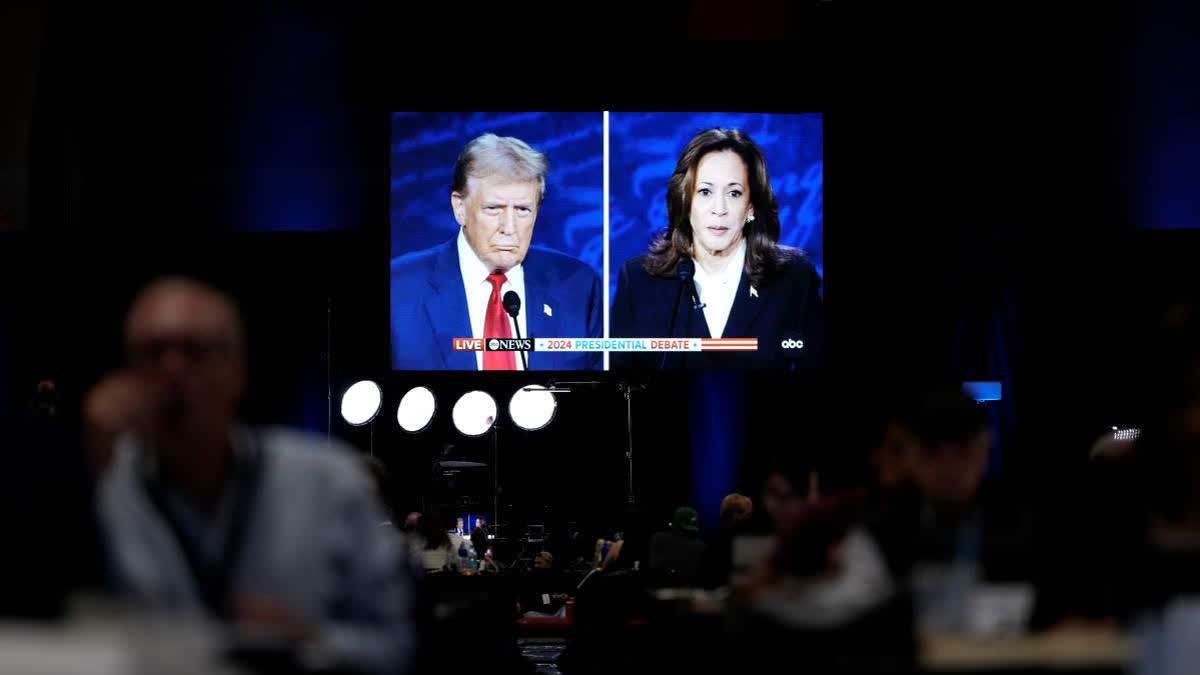New Delhi: As the US Presidential polls approach, India is carefully watching how the candidate policies may impact its economic interests or the bilateral relations with America.
ETV Bharat’s Chandrakala Choudhury spoke to experts on how US presidential poll outcomes could possibly influence the India-US relations.
India’s ex-ambassador to the US, Meera Shankar said, “There is a bipartisan consensus in the US to strengthen ties with India. Both Democratic and Republican administrations have helped to build strategic partnership with India over time.
“Having said that, we would obviously be impacted by the divergent policies of the two candidates. For instance, Trump’s proposed tariffs of 20 per cent on all US imports could have an adverse impact on our exports. Or his restrictive visa policy could affect our software and service companies. Trump could also walk out of the agreement on climate change and that would be a big blow to global efforts, modest as they are, to deal with global warming,” Shankar told ETV Bharat.
She pointed out that both the candidates see China as a strategic competitor, but Kamala is likely to continue Biden’s systematic coalition building in Asia, whereas Trump could be unpredictable.
On Ukraine, Shankar said, “Trump would seek to end the military conflict, while Kamala is likely to continue US support for Ukraine”.
Foreign policy and think-tank expert Professor Harsh V Pant noted that whatever might be the outcome of the polls, India and US are likely to continue to work closely to address the challenges in global order particularly in the Indo-Pacific.
“The fundamental structural factors that have brought India's tie with the US closer in the last three decades, will continue to work. The China factor in the US Presidential elections will continue to have an impact on US-India ties. The management of China as a global entity both for India and the US is going to be the driving factor in their foreign policies,” Prof Pant added.
“As the balance of power changes in the Indo-Pacific will ensure that India and the US continue to work together just as across different administrations in the last few decades, India and the US have continued to come close together,” he added.
Millions of viewers watched Donald Trump and Kamala Harris in their first televised debate on the election campaign on Wednesday.
In 90 minutes of fiery exchanges, the Republican and Democratic presidential candidates traded claims over key election issues including economy, immigration and abortion.
“Whatever might be the outcome of the polls, India and US are likely to continue to work closely to address the challenges in the global order particularly in the Indo-Pacific, Prof Pant further pointed out.
Asked about what role does the US Presidential election play in shaping global perception of India’s international stance, Prof Pant said, “There is always a degree of uncertainty with Trump and that will remain a challenge because it is not entirely evident if he has a particular view on a range of issues. Therefore, the uncertainty creates a void for most nations including India. For regional security issues, it is important for India that the US remains engaged in the Indo-Pacific and the Biden administration has continued to follow that approach”.
He opined that Biden has revived American alliances and has crafted new partnerships in the Indo-Pacific. It is likely that Harris, given that she was part of the Biden administration, continued to pursue those policies. India’s expectation would be that Harris would take an approach Biden had taken and those aspects where India and US continue to come closely remains the same.
“But with Trump, the degree of uncertainty will be an important factor and how India manages to have a relationship with the future Trump administration will determine the course of many of these issues. Broadly, whether it is Trump or Kamala Hariss, there is a genuine debate in the US about the role it should be playing in the world and there is a greater focus on American policies. India, therefore, has to make sure it plays a larger role in global affairs if global goods are to be provided and if regional security and stability is to be maintained,” Pant added.
As Prime Minister Narendra Modi prepares for his visit to the US this month, following a recent trip to Russia and Ukraine, there is growing anticipation for the diplomatic manoeuvres and engagements that will unfold.
Over 24,000 members of the Indian diaspora have eagerly registered for a grand community event during his visit.
India and US share a strong relationship characterised by collaboration in various areas including trade, defence, technology, and education. Both countries have worked together on global issues such as climate change and regional security. The strategic partnership between them continues to expand, driven by mutual interests and shared values.



